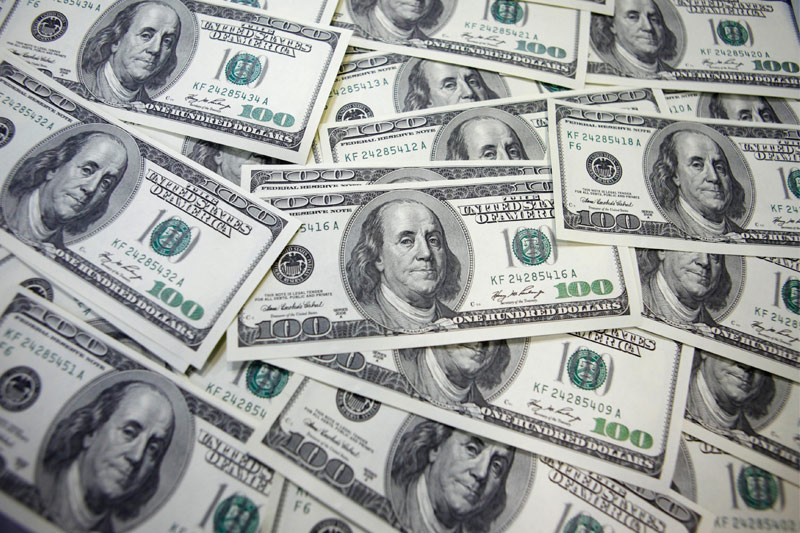Investing.com - The dollar turned broadly lower against a basket of other major currencies on Wednesday, as the release of downbeat U.S. economic reports dampened demand for the greenback.
Official data showed that U.S. retail sales fell 0.3% last month, more than the expected 0.1% slip, after an increase of 0.6% in August.
Core retail sales, which exclude automobiles, dropped 0.2% in September, confounding expectations for a 0.3% gain, after a 0.3% rise the previous month.
A separate report showed that U.S. producer price inflation slipped 0.1% last month, disappointing expectations for a 0.1% rise, after a flat reading in August.
In addition, the Federal Reserve of New York reported that its manufacturing index tumbled to a six-month low of 6.2 in October from a reading of 27.5 the previous month. Analysts had expected the index to tick down to 25.5 this month.
The US Dollar Index, which tracks the performance of the greenback against a basket of six major currencies, slid 0.38% to 85.58.
The euro regained traction against the dollar, with EUR/USD up 0.45% to 1.2716 .
The euro had come under pressure earlier, amid growing concerns over the outlook for growth in the euro zone after data on Tuesday showed that the bloc's industrial production declined more than expected in August, while July's figure was revised down.
A separate report showed that German economic sentiment deteriorated to the lowest level since December 2012 in October, fuelling further concerns over the euro zone's largest economy.
The pound eased off 11-month lows, with GBP/USD rising 0.37% to trade at 1.5964. Data released earlier in the session showed that the U.K. claimant count declined less than expected in August, although the unemployment rate fell to the lowest level since October 2008.
The U.K. Office for National Statistics said that the claimant count fell by 18,600 last month, compared to expectations for a decline of 35,000 people. August’s figure was revised to a drop of 33,200 people from a previously reported decline of 37,200.
The report also showed that the rate of unemployment declined to 6.0% in the three months to August, compared to expectations for a reading of 6.1% and down from 6.2% in the three months to July.
The yen and the Swiss franc were also higher, with USD/JPY dropping 0.50% to 106.52, while USD/CHF declined 0.48% to trade at 0.9489.
The yen strengthened after Japan's Economics Minister Akira Amari said in parliament on Wednesday that the government is not pursuing a policy to intentionally weaken the nation's currency and that it is necessary to monitor any negative impact from rising import prices.
The Australian and New Zealand dollars were broadly stronger, with AUD/USD gaining 0.54% to 0.8760 and NZD/USD advancing 0.65% to 0.7893.
Earlier Wednesday, the Westpac Banking Corporation said its index of consumer sentiment for Australia rose 0.9% this month after a 4.6% decline in September, while a separate report showed that new motor vehicles in Australia increased by 2.9% last month after a 1.6% decline in August.
Meanwhile, USD/CAD was up 0.31% to 1.1334 as tumbling oil prices pressured the commodity-linked loonie lower.
